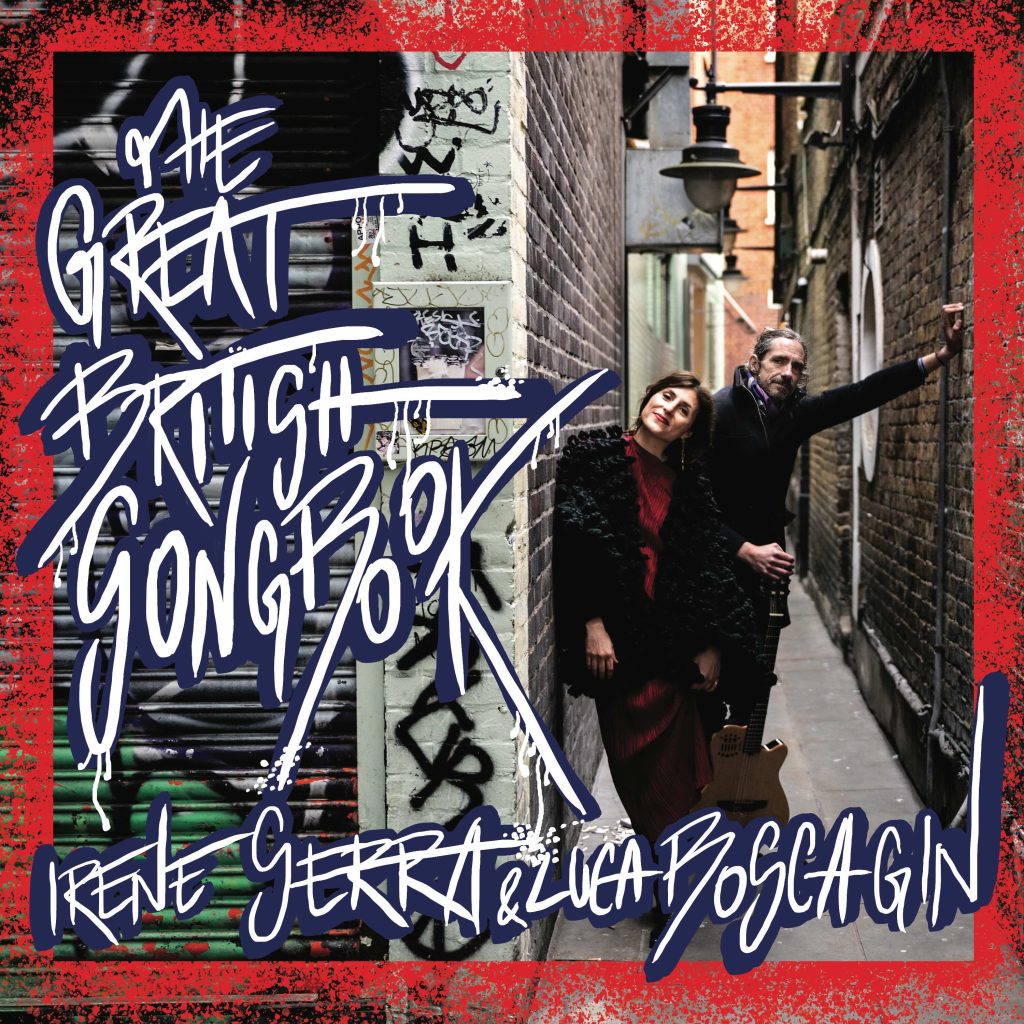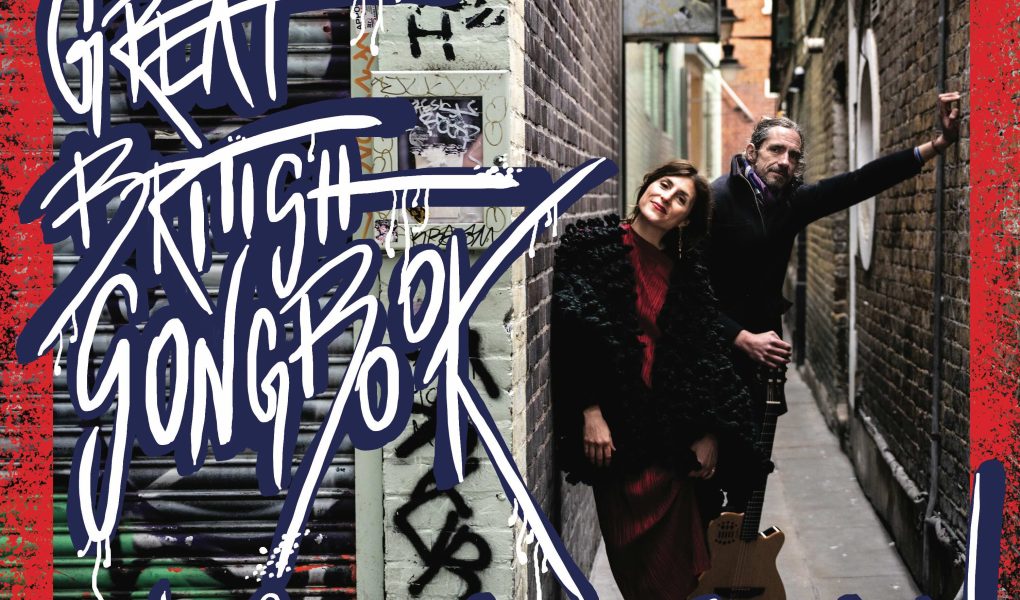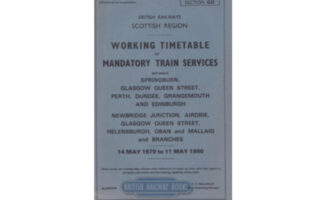
Irene Serra – A lot of jazz, a bit of baking and The Great British Songbook
Irene Serra is a musician with an eclectic taste in music, but her love and strength of conviction lie with jazz. Irene was born in Italy, raised in Denmark, and now lives in London. It is no wonder she has a broad palette of influences from which to draw. She has loved jazz since she was a child and performed for her parents and guests at dinner parties. Her formative schooling included choirs, playing alto recorder, and a short dalliance with a violin. By the time she was eight years old, Serra was playing piano and making up songs – mostly about cats and boys.
A meeting with internationally acclaimed jazz singer Tiziana Ghiglioni while Serra was in Milan, led her to find the Great American songbook and a love of scat singing. She continued her studies at Goldsmiths College and the Guildhall School of Music and Drama where she completed an MMus (Jazz Studies). Since then she has been a feature of the London music scene, performing in prestigious venues including the Barbican Centre, Ronnie Scott’s, Pizza Express Jazz Club, Union Chapel, the National Theatre, Kings Place, Cadogan Hall, and the Elgar Room at The Royal Albert Hall.
She reached the semi-finals of the Brussels International Young Jazz Singer competition and the finals of the Shure Jazz Voice Competition at the Montreux Jazz Festival!
Her fascination for the Great American Songbook has led to her most recent project The Great British Songbook, and Platinum Mind wanted to learn more about Irene Serra and this project so Sammy caught up with her for an interview.
Tell us briefly about your journey in music until now.
Music and singing are some of the first real memories I have, at least the feeling of music. I’m Southern Italian originally but grew up in Denmark and later came to the UK to study music and live. We had a great music programme at my school in Copenhagen and it was a very encouraging and nurturing environment. I was very blessed to be exposed to that growing up otherwise life might not have led me on a musical path.
Your list of recordings is growing. Can you tell us more about your new release and how you chose the songs you included? Is there a connective path between them?
I have a new album coming out called ‘The Great British Songbook’ with a fantastic guitarist called Luca Boscagin. It is released on Friday 29th November. British music has always captivated me. It’s astounding how so many groundbreaking sounds—from The Beatles and The Rolling Stones to Pink Floyd and The Sex Pistols—came from this small island. ‘The Great British Songbook’ began with late-night talks with Luca, my guitarist and collaborator, about the music we love. We’d often slip British pop tunes into gigs for fun, and one night it clicked: we should make this a full project. With each song, we took a jazz musician’s approach, keeping the core intact while adding layers of improvisation, reharmonizing, and playful twists. Seeing audiences light up as they recognize a reimagined melody has been magical. For me, this project isn’t just musical exploration—it’s a love letter to British music and a celebration of why, after nearly 25 years, the UK feels like home. Choosing the repertoire was a democratic process: Luca and I made lists of our favorite tunes of the last 70 years of British pop/rock music, everything from The Beatles to Genesis to Imogen Heap, and it turned out we had plenty of overlap. We jammed, experimented, and crafted arrangements that balanced the essence of British pop with our shared love for jazz improvisation and spontaneity.
Luca is an Italian guitar player who has played at some prestigious venues and recorded with the Cinematic Orchestra. How did you and he come to collaborate?
Luca and I have been playing together for over 15 years, and our first meeting was a twist of fate! I’d been learning Brazilian songs from a band I’d found on YouTube, and during our first rehearsal, I suddenly realized Luca was the guitarist in that exact band. Needless to say, we connected right away—and have been making music together ever since. He’s also the guitarist in my project of original music, a jazz/pop/electro outfit called ISQ.
How is it promoting your music? Do you target specific audiences?
Promoting your music is such a big part of being a musician nowadays and the internet and social media have made this easier as an independent artist. I am very lucky to have my partner, who works in marketing, help me on that side of things. We definitely set up a release plan and try to create as much awareness of the music through single releases before the launch of the full album. Just releasing an album and hoping for the best doesn’t really work anymore. I use some paid marketing targeting both specific audiences and wider demographics on social media platforms such as Facebook and Instagram. I also try to focus on being very engaged with my mailing list, as that is the most useful promotional tool of all, as the people that have signed up are real fans of the music and most likely to support me, either by buying my new album or by coming to see me at a live performance.
How have you found a label /agent and other people to represent you?
At the moment I’m still an independent artist. There are lots of great, smaller labels out there, and some that are not so great. I’m not obsessed with being signed to a label just for the perceived prestige of it and have heard quite a few horror stories from my colleagues over the years if you sign to the wrong label. Having said that, I’m definitely going to try and find the right one for my next ISQ album. I’ve released all my albums independently so far and have done a lot of my own press outreach so I know what I’m looking for in a label to take me that further step that I can’t reach myself.
Where is your favourite place to play?
Peggy’s Skylight in Nottingham is always a great experience, a beautiful jazz club with a lot of soul!
As a female artist? Do you feel there is any prejudice or expectations of women that male performers do not have, or do you feel the field is even now?
In my 20+ years of performing, I’ve seen the jazz world evolve—especially over the past few years. More women are stepping onto the scene, not just as musicians but, crucially, behind the scenes as booking agents, journalists, and promoters. This shift is fundamental for lasting change, as it broadens perspectives and opportunities. Women in jazz are now getting more visibility and recognition, and there’s genuine momentum. My hope is that future generations won’t need to champion gender balance; equality will simply be a given.
If you were to advise a young performer just starting, are there any lessons you might pass on?
The music industry has changed so much since I began. If I could give one key piece of advice to aspiring musicians, it would be this: longevity comes from dedication and hard work—that’s what real ‘talent’ is built on.
What would you like to have achieved in, say, five or ten years’ time music-wise?
A headline gig at Ronnie Scott’s is high on my bucket list—I’d love for it to happen soon! After nearly twenty years on the London jazz scene, the timing feels just right. Next up, after ‘ The Great British Songbook’ release, are UK and European dates for this project and recording ISQ’s fifth album next year.
What would you say are the hardest areas of being a musician?
One of the biggest challenges to being a musician is juggling the work beyond making music—we’re not just artists anymore; we’re managers, content creators, promoters, and more. It can be overwhelming, and finding balance is always tough. I’m lucky to have my partner’s help with a lot of the admin work—without him, I’d struggle to sustain three different music projects. Scheduling everything in my calendar, from practice and writing to promotional tasks, is essential. Social media is powerful for connecting with fans, but I’m glad I grew up without it; it allowed me to focus purely on my craft early on. Balancing it all isn’t easy, but staying organized makes it possible.
Is it difficult to fit music in with other aspects of your life?
Sometimes you can get stuck in an obsessive practice and/or writing loop and miss out on actually living your life! I have lots of hobbies and other passions in my life, from cycling, hiking, and skiing to traveling and baking cakes! I have to remind myself often to allow myself time to do all these other things that enrich my life and ultimately enrich my music.
Have you found the impact of streaming on making a living from your music to have had any impact?
There is no serious money to be made in streaming, at least not for the vast majority of artists. But we have to be on these streaming platforms to maintain visibility and ease of access with the public so it’s a bit of a catch-22. I still do quite well with CD sales at gigs, but younger people aren’t used to buying music anymore. So yes, it’s definitely had an impact on my earnings.
Photography Credit: Album Cover Tatiana Gorilovsky




